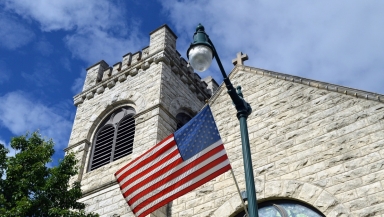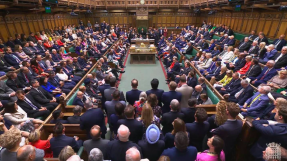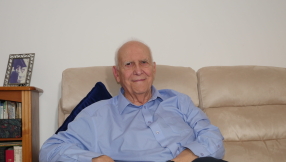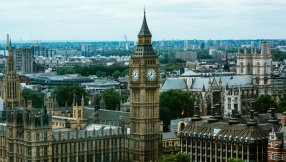
A United States Federal Judge has granted an injunction that will prevent immigration agents from carrying out operations in places of worship after a group of religious organisations launched a lawsuit against the Trump administration over new enforcement policies.
The group, which includes a coalition of Quaker meetings from states including Maryland, Massachusetts, Pennsylvania, and Virginia, a Georgia-based network of Baptist churches, and a Sikh temple in California, launched the action against the Department of Homeland Security (DHS) and its head, Kristi Noem, in response to changes to its policy governing where migrant arrests could be carried out.
Under the new policy, field agents using “common sense” and “discretion” would no longer require a supervisor’s approval to conduct immigration enforcement operations in houses of worship. The lawsuit argued that the change to the government’s 30-year-old policy against operating in “protected areas” or “sensitive locations” had left many immigrants too scared to attend religious services, a violation of their right to religious freedom.
“It’s a fear that people are experiencing across the county,” the plaintiffs’ attorney, Bradley Girard, told US District Judge Theodore Chang during a hearing in February.
“People are not showing up, and the plaintiffs are suffering as a result.”
The judge, who is based in Maryland, agreed to grant a preliminary injunction blocking the new policy while the suit is being heard, but it will only apply to the plaintiffs named in the case. However, lawyers from the Democracy Forward Foundation, who are representing the group, asked the judge to block DHS enforcement of the policy on a nationwide basis.
“DHS’s new policy gives it the authority to enter any house of worship across the country, no matter its religious beliefs,” the attorneys wrote.
Government lawyers criticised the decision, saying that the request from the plaintiffs was based on mere speculation.
“Plaintiffs have provided no evidence indicating that any of their religious organisations have been targeted,” Justice Department attorney Kristina Wolfe wrote.
The government also claimed that enforcement actions had already been permitted in sensitive places, including houses of worship, for decades and that the only change to existing policies was that a supervisor’s approval would no longer be mandatory.
Immediately after he was inaugurated in January, President Donald Trump began issuing a series of executive orders hardening the country’s approach to immigration, but they have already faced several legal challenges from both state governments and non-government organisations.
Following the Maryland lawsuit, a coalition of more than two dozen Christian and Jewish groups that represent millions of Americans filed a similar federal lawsuit in the US District Court in Washington.
Made up of denominations ranging from the Episcopal Church and the Union for Reform Judaism to the Mennonites and Unitarian Universalists, the coalition claimed that the new policies infringed on their ability to minister to migrants, many of whom are in the United States illegally, because they were afraid to participate in worship services and other valuable church programmes.
“We have immigrants, refugees, people who are documented and undocumented,” the Most Rev Sean Rowe, the presiding bishop of the Episcopal Church, told The Associated Press.
“We cannot worship freely if some of us are living in fear. By joining this lawsuit, we’re seeking the ability to gather and fully practice our faith, to follow Jesus’ command to love our neighbours as ourselves.”
The denominations taking part in the lawsuit represent some of the oldest religious expressions in the US, with thousands of congregations across the country and millions of believers.
“The massive scale of the suit will be hard for them to ignore,” the lead counsel for the lawsuit, Kelsi Corkran, a lawyer with the Georgetown University Law Center’s Institute for Constitutional Advocacy and Protection, said.
These groups had joined the suit, she said, “because their scripture, teaching, and traditions offer irrefutable unanimity on their religious obligation to embrace and serve the refugees, asylum seekers, and immigrants in their midst without regard to documentation or legal status.”













